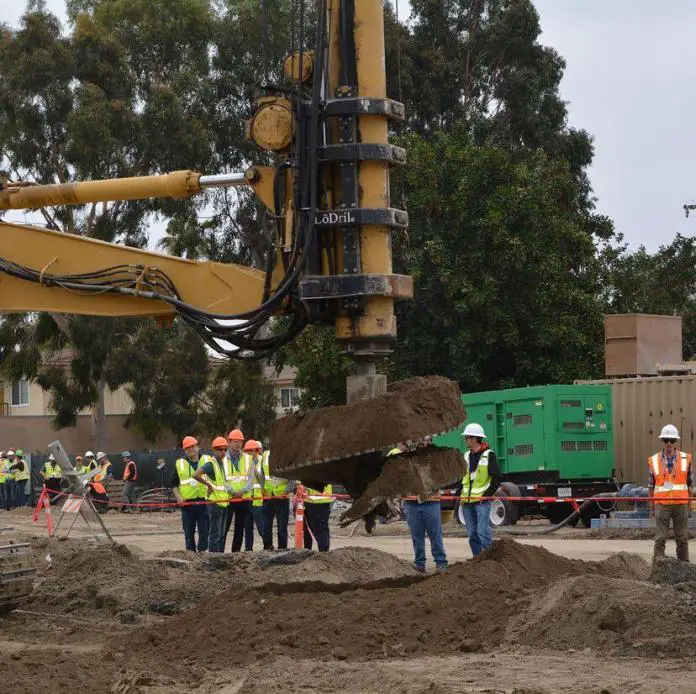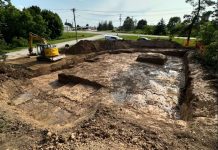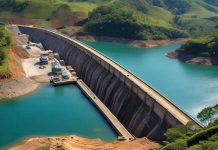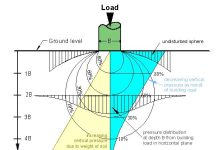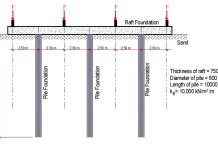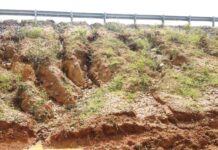Geotechnical engineering is a branch of civil engineering concerned with the engineering behaviour of soils. Geotechnical engineers apply the principles of soil and rock mechanics to the design of the foundation of all structures and infrastructures resting on the ground, and the use of geomaterials (soils and rocks) for construction. They are also interested in ground improvement, and protection of the soil and groundwater from pollution. Geotechnical engineering is also known as soil engineering.
Geotechnical engineers, therefore, design the foundations of buildings, bridges, dams, embankments, highways, earthworks and deep excavations, natural and man-made earth slopes, landfills, retaining walls, tunnels, cofferdams, etc. In practice, they work closely with structural engineers, highway/transportation engineers, geologists, water resources engineers, etc.
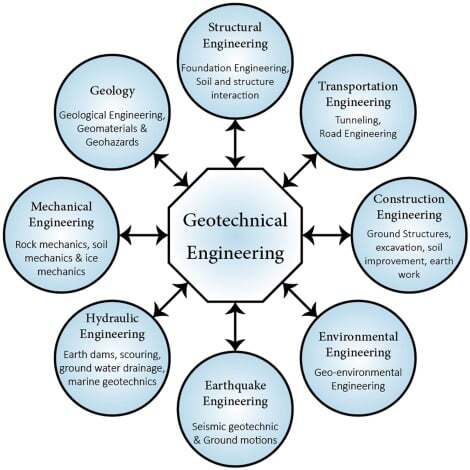
Soil is a product of nature with so many different properties. Some soils are firm and stiff enough for construction purposes, while some soils are weak and marginal, hence unsuitable for construction purposes.
The loads from all structures are ultimately transferred to the ground, and it is expected that the ground should be able to withstand the load without undergoing excessive settlement or shear failure. Furthermore, when geomaterials are to be used in civil engineering constructions such as highways, embankments, earth dams, etc, the material selected should have specific engineering properties that will prevent premature failure of the construction. It is the job of geotechnical engineers to recommend suitable materials or design the stabilisation/modification of existing materials.
During the design of foundations, the size and type of foundation can be altered to ensure that the pressure on the soil is within allowable limits. This is essentially the job of geotechnical engineers.
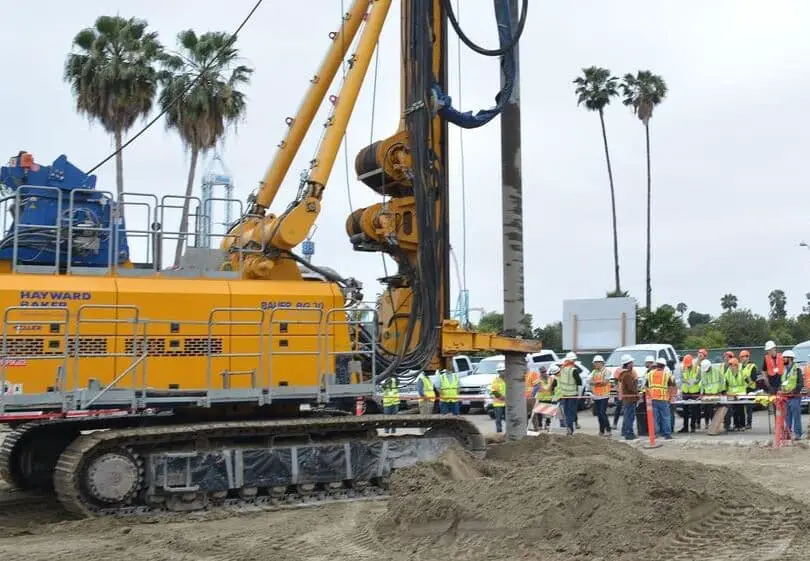
In some cases, the load coming from the structure may be too high, or the soil near the surface may be too weak, such that the geotechnical engineer may recommend a deep foundation such as piles. Using the geotechnical soil investigation report, geotechnical engineers recommend the depth, size, type, and allowable load on the pile.
In essence, geotechnical engineers perform geotechnical analysis to assess site condition, perform field and environmental investigations, plan and conduct geotechncial exploration, review construction design proposls and approve geotechnical aspects.
A lot of theories are applied during the design of foundations and other earthen structures, and a geotechnical engineer combines them with soil investigation findings to decide on the most suitable foundation.
Some important topics of geotechnical engineering are;
(1) Shear strength of soils
(2) Compressibility and consolidation
(3) Stresses in soil
(4) Phase relationship and physical properties of soils
(5) Compaction
(6) Characterisation/Classification of soils
These topics form the basis of many geotechnical engineering design concepts such as foundation design, retaining walls design, stability of slopes, dam engineering, highway construction etc. Other important topics in geotechnical engineering are the flow of water through soils (hydraulic conductivity), soil dynamics, ground improvement, etc.
Geotechnical engineers are also interested in the improvement of marginal soils such as expansive soils, collapsible soils, etc in order to improve their engineering properties.
Depending on the findings of the geotechnical soil investigation report, overexcavation and replacement of the weak soil with a more suitable material may be recommended. Other solutions can include, stabilisation of the soil with cement, lime, pozzolans, agricultural and industrial wastes, etc. Fibres and geotextiles are also used in soil stabilisation and improvement.
Other methods such as the use of vertical sand drains, deep soil mixing, stone columns, dynamic compaction, micro piles, and grouting can be used to densify weak soils and reduce settlement potential.
Therefore, the practice of geotechnical engineering relies heavily on soil investigations which usually include laboratory and field testing of soil and rock samples. The results obtained from laboratory investigations are then used to carry out design with an appropriate factor of safety.
Geotechnical engineers are found in private consultancy, in academia, as borehole experts, construction industry, the oil and gas industry, the mining industry, military and warfare, water resources companies, etc. Their services can include; foundation design, design of earthen structures, groundwater extraction consultancy, verification of designs, design of machine foundations, structural design of highway pavements and embankments, ground improvement, etc.
Geotechnical engineers usually have civil engineering as their first degree, and may go ahead to obtain post graduate degrees in geotechnical engineering. They must also be registered/licensed to practice engineering in their country or state. This involves passing all the professional exams and interviews involved in the qualification process.
Some of the aspects of geotechnical engineering that are distinguished as a result of research and practice are as follows:
- Transportation geotechnics
- Geo-environmental engineering
- Energy geotechnics
- Rock mechanics
- Soil mechanics
- Foundation Engineering
- Marine/offshore geotechnics
Professional Bodies in Geotechnical Engineering
Some notable geotechnical engineering professional bodies are;
- International Society of Soil Mechanics and Geotechnical Engineering (ISSMGE)
- Academy of Geo-professionals
- Canadian Geotechnical Society (CGS)
- Chinese Institution of Soil Mechanics and Geotechnical Engineering China Civil Engineering Society (CISMGE)
- Indian Geotechnical Society (IGS)
- Japanese Geotechnical Society (JGS)
- Kazakhstan Geotechnical Society (KGS)
- Korean Geotechnical Society (KGS)
- Mexican Society of Geotechnical Engineering (SMIG)
- Russian Society of Soil Mechanics and Geotechnical, and Foundation Engineering (RSSMGFE)

